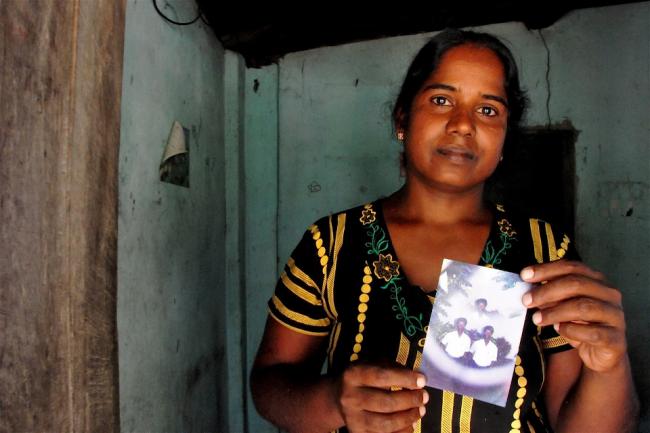
The comments by the Secretary-General’s Special Advisers on the Prevention of Genocide, Adama Dieng, and on the Responsibility to Protect, Jennifer Welsh, follow the release yesterday of a report by the UN human rights office (OHCHR) that identified patterns of grave violations, including indiscriminate shelling, extrajudicial killings, enforced disappearances, harrowing accounts of torture and sexual violence, and recruitment of children.
Welcoming the report, Secretary-General Ban Ki-moon hoped that its recommendations will help support the efforts of the people and the Government of Sri Lanka “to carve a durable path towards long-lasting peace and stability and respect for human rights, through a genuine and credible process of accountability and reconciliation that meets international standards.
“The victims of all communities, their families and the Sri Lankan nation itself demand no less than a full and proper reckoning,” he added in a statement issued by his spokesperson.
Indeed, the report recommended the establishment of a hybrid special court to ensure that justice is served.
“Sri Lanka has gone through a very dark period of its history during the years of the conflict, which has caused immense suffering for all communities,” the Secretary-General’s Special Advisers stated.
“Accountability is not just a matter of justice; it is also a matter of reconciliation, peace and non-recurrence,” they continued.
They added,“The wounds of the past need to be properly treated and healed in order to write a new peaceful page in Sri Lankan history.”
The Special Advisers called for the establishment of accountability and reconciliation mechanisms that would meet international human rights law standards.
“This is a process that will be painful and difficult, but indispensable for long-lasting peace and stability in the country,” they added.
Welsh stressed that the Sri Lankan Government has the primary responsibility to protect its populations from genocide, war crimes, ethnic cleansing and crimes against humanity.
She said, “This responsibility entails bringing to account those responsible for crimes committed but also taking concrete steps to prevent their recurrence.”
For his part, Dieng cautioned that outstanding grievances among Sinhalese and Tamil communities could pave the way to further violence.
The Special Advisers highlighted that respect for diversity and intercultural dialogue and non-discrimination must be incorporated into national level policies. They also recommended that the Government ensure greater representation of all ethnic and religious communities.
“The voices of the minorities need to be heard because they too are Sri Lankan,” they stressed.
Photo: Amantha Perera/IRIN
Support Our Journalism
We cannot do without you.. your contribution supports unbiased journalism
IBNS is not driven by any ism- not wokeism, not racism, not skewed secularism, not hyper right-wing or left liberal ideals, nor by any hardline religious beliefs or hyper nationalism. We want to serve you good old objective news, as they are. We do not judge or preach. We let people decide for themselves. We only try to present factual and well-sourced news.







